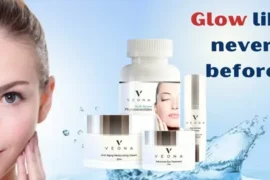Introduction
Cosmetics have come a long way from their humble beginnings of natural oils and pigments to sophisticated formulations involving cutting-edge science. Among the game-changers in cosmetic science are carbohydrate polymers, which are not only natural but also highly versatile in various applications.
One of the most fascinating roles they play is as rheology modifiers, substances that affect the flow and texture of formulations. Rheology, or the study of how materials deform and flow, is a critical factor in how cosmetics feel, spread, and perform on the skin.
Today, carbohydrate polymers are revolutionizing the world of rheology modifiers, making them indispensable in the development of superior dermatological products.
In this post, we will dive into the science of carbohydrate polymers in cosmetics, particularly their role as rheology modifiers. We will explore their chemistry, how they enhance product performance, and their future potential in the skincare industry. As we delve deeper, we’ll also take a look at how these ingredients contribute to the formulation of superior dermatological products, enhancing both the functionality and sensory experience.

Carbohydrate Polymers in Cosmetics
Carbohydrate polymers, naturally derived or synthetically produced, have become a cornerstone in modern cosmetic formulations. They are large molecules composed of repeating carbohydrate (sugar) units, and their structural diversity enables them to interact with water, oils, and other ingredients in unique ways.
In cosmetics, carbohydrate polymers serve various functions: they act as thickeners, film-formers, emulsifiers, and, most importantly, as rheology modifiers. Their role as rheology modifiers is especially significant in creating cosmetic products that are not only stable but also pleasant to apply.
Rheology modifiers control the viscosity, spreadability, and texture of a formulation. For example, they can make a lotion feel smooth and non-greasy, ensure a foundation spreads evenly, or help a gel-based product stay on the skin without dripping. When carbohydrate polymers are used as rheology modifiers, they add natural, skin-friendly benefits while contributing to product stability and performance.
As consumers demand more eco-friendly and sustainable options in their cosmetics, carbohydrate polymers offer a solution. Derived from renewable sources, they are biodegradable and less likely to cause irritation compared to synthetic counterparts. This dual advantage of superior functionality and environmental compatibility is what makes carbohydrate polymers a revolution in the cosmetic world.
The Role of Carbohydrate Polymers as Rheology Modifiers
When it comes to cosmetics, texture and flow are everything. A cream that is too thick may feel heavy and greasy, while a lotion that is too thin may not spread evenly on the skin. Rheology modifiers are used to address these concerns, ensuring the product has the right viscosity and consistency for a smooth, pleasant application. Carbohydrate polymers excel in this role due to their ability to form gels, increase viscosity, and stabilize emulsions.
Gel Formation and Viscosity Control
One of the key properties of carbohydrate polymers is their ability to form gels when mixed with water. This property is crucial for creating products such as gels, serums, and lotions that need a specific thickness.
Depending on the type of carbohydrate polymer used, the gel can be fine-tuned to have a particular viscosity. For instance, xanthan gum, a popular carbohydrate polymer, can produce a smooth, gel-like consistency that is ideal for hair care products or moisturizing creams.
Stabilization of Emulsions
In cosmetics, many products are emulsions—a mixture of oil and water that would naturally separate over time. Carbohydrate polymers help stabilize these emulsions, preventing the ingredients from separating and extending the shelf life of the product. Polymers like guar gum and carrageenan are excellent examples of stabilizers that maintain a consistent texture and ensure that the product remains homogeneous.
Enhanced Spreadability and Sensory Experience
Another important function of carbohydrate polymers as rheology modifiers is enhancing the spreadability of products. A lotion that spreads easily is more desirable to consumers than one that clumps or drags on the skin. Carbohydrate polymers help create a smooth texture that glides on effortlessly, improving the sensory experience for the user. This is particularly valuable for products like sunscreens and foundations, where even application is crucial for effectiveness and appearance.
Carbohydrate Polymers: Enhancing Product Performance and Stability
One of the main reasons for the growing use of carbohydrate polymers in cosmetics is their ability to significantly enhance product performance and stability. Superior dermatological products rely not only on active ingredients that provide skincare benefits but also on a stable and well-functioning formula. Carbohydrate polymers contribute to the overall efficacy and longevity of cosmetic products in several ways.
Water Retention and Hydration
Carbohydrate polymers, such as hyaluronic acid, are known for their ability to retain moisture. In skincare products, this translates to better hydration for the skin. When used in moisturizers and serums, these polymers form a film on the skin’s surface that locks in moisture, keeping the skin hydrated for longer periods. This makes them especially useful in anti-aging products, where maintaining moisture is key to reducing the appearance of fine lines and wrinkles.
Improved Shelf Life
One of the challenges faced by cosmetic formulators is maintaining the stability of products over time. Heat, light, and microbial contamination can all degrade a product, affecting its efficacy and texture.
Carbohydrate polymers help extend the shelf life of cosmetic products by acting as stabilizers and preserving the consistency of the formulation. For instance, cellulose derivatives are widely used in cosmetics to prevent the breakdown of emulsions and protect against ingredient separation.
Protection of Active Ingredients
Many cosmetic products contain active ingredients like vitamins, antioxidants, or peptides that can be unstable and prone to degradation. Carbohydrate polymers can form a protective barrier around these actives, ensuring they remain stable and effective over time. This encapsulation technology is particularly valuable in anti-aging and therapeutic skincare products, where the integrity of the active ingredients is critical to the product’s performance.
The Eco-Friendly Advantage of Carbohydrate Polymers
In recent years, sustainability has become a significant concern in the cosmetics industry. Consumers are increasingly aware of the environmental impact of the products they use, from sourcing ingredients to packaging and disposal. Carbohydrate polymers offer a sustainable alternative to synthetic ingredients, making them a popular choice for eco-conscious brands and consumers alike.
Biodegradability and Renewable Sources
Carbohydrate polymers are derived from natural, renewable resources such as plants, algae, and bacteria. Ingredients like guar gum, alginate, and xanthan gum are produced sustainably and are biodegradable, meaning they break down naturally without harming the environment. This contrasts with synthetic rheology modifiers, which may persist in ecosystems and contribute to pollution.
Reduced Environmental Footprint
The production of carbohydrate polymers typically has a lower environmental footprint compared to synthetic alternatives. For instance, the extraction of polysaccharides from plant sources requires fewer chemicals and less energy, resulting in a more eco-friendly manufacturing process. Additionally, because these polymers are derived from renewable sources, they do not contribute to the depletion of non-renewable resources.
Meeting Consumer Demand for Green Cosmetics
The use of carbohydrate polymers aligns with the growing consumer demand for “green” cosmetics—products that are not only effective but also environmentally responsible. Brands that prioritize sustainability can leverage carbohydrate polymers as key ingredients to appeal to eco-conscious consumers. This shift towards natural, biodegradable ingredients is transforming the cosmetic industry, with carbohydrate polymers leading the charge.
The Future of Carbohydrate Polymers in Dermatological Products
As the cosmetics industry continues to innovate, the use of carbohydrate polymers as rheology modifiers in superior dermatological products is poised to grow. These versatile ingredients not only enhance the performance and feel of cosmetics but also offer a sustainable and eco-friendly alternative to traditional synthetic materials.
Innovations in Skincare Formulations
The future of skincare lies in the development of more sophisticated formulations that target specific skin concerns. Carbohydrate polymers, with their ability to encapsulate active ingredients and control the release of these compounds over time, will play a crucial role in next-generation skincare products.
For instance, we can expect to see more products that offer long-lasting hydration, anti-inflammatory properties, and enhanced delivery of nutrients to the skin, all made possible by carbohydrate polymers.
Personalized Cosmetics
Another exciting avenue for carbohydrate polymers in cosmetics is the trend toward personalized skincare. As consumers seek products tailored to their unique skin types and concerns, carbohydrate polymers offer the flexibility to create custom formulations. Their ability to modify the texture, viscosity, and stability of a product means that formulators can design bespoke cosmetics that cater to individual preferences and needs.
Sustainable Packaging and Product Development
Beyond the formulation itself, carbohydrate polymers may also have a role to play in sustainable packaging solutions. Biodegradable films and coatings made from carbohydrate polymers could replace conventional plastic packaging, further reducing the environmental impact of cosmetic products. This holistic approach to sustainability—from ingredient sourcing to packaging—will likely define the future of the cosmetics industry.
Conclusion
Carbohydrate polymers are revolutionizing the world of cosmetics by serving as powerful rheology modifiers that enhance the texture, stability, and efficacy of formulations. Their versatility, eco-friendly nature, and ability to improve product performance make them a key ingredient in the creation of superior dermatological products.
As the demand for sustainable and high-performing cosmetics grows, carbohydrate polymers will continue to play a crucial role in shaping the future of skincare and cosmetic formulations.
Have you used any cosmetic products that feature carbohydrate polymers? What was your experience like? Share your thoughts in the comments below! We’d love to hear your insights on how these ingredients are transforming your skincare routine.





